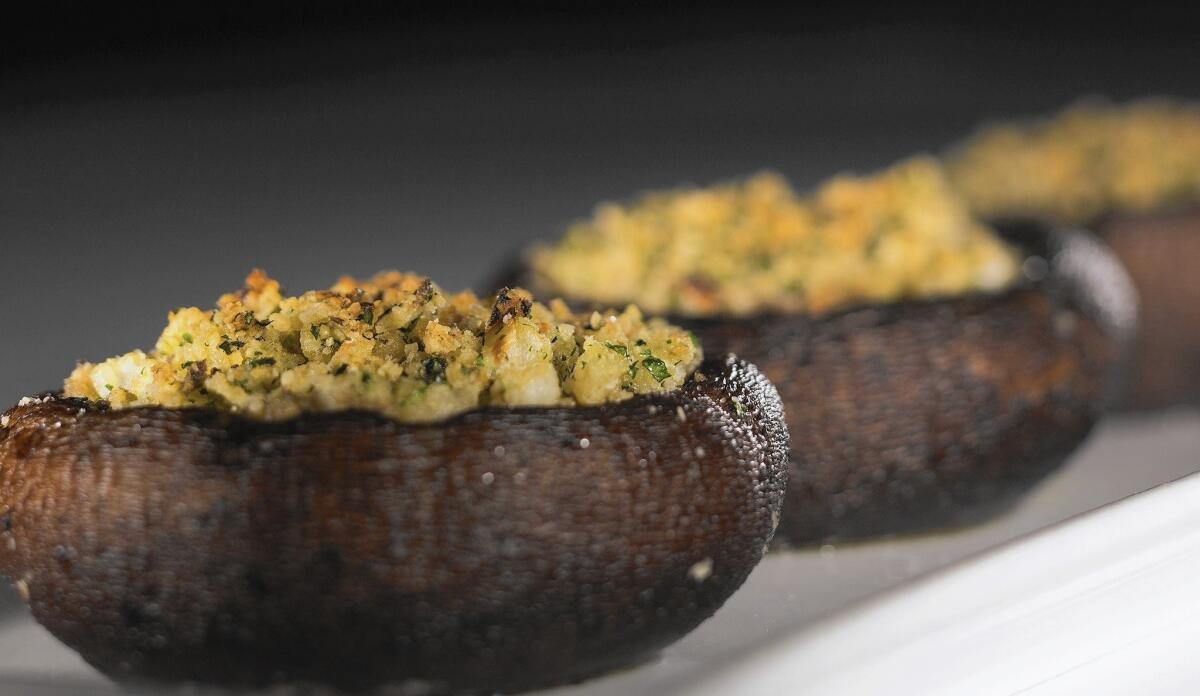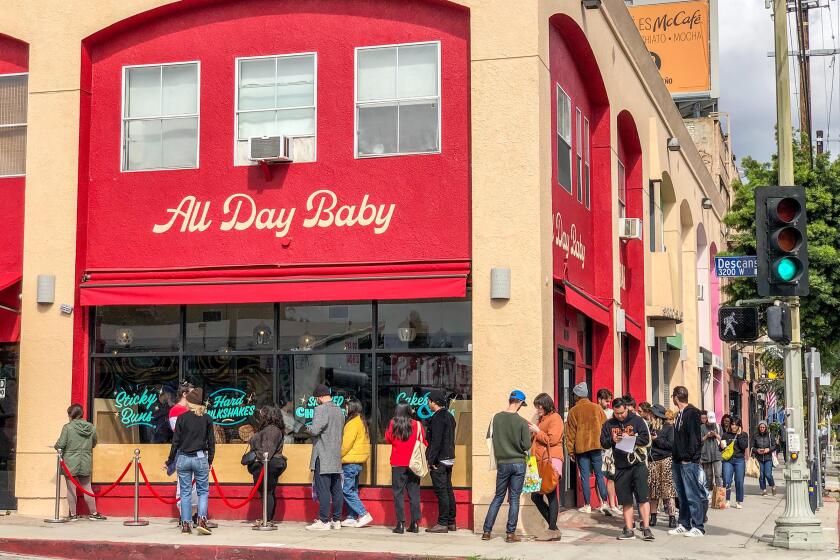What can a vegan eat at Seder? Here are some hearty, creative ideas.

Questions figure prominently in Judaism, especially during Passover. The festive meal — the Seder — revolves around the inquiry: Why is this night different from all other nights? The answer is delivered via four questions, which tell the story of the enslaved Israelites’ exodus from Egypt.
For vegans at the Seder table, there’s an obvious fifth question: What are we going to eat?
There’s some worry in that query, which you’re not likely to hear from omnivores, whose options include gefilte fish, matzo ball soup, chopped liver, roast chicken and brisket.
For vegetarians too, the eight-day holiday (which begins Friday evening, April 22) can be a piece of cake — as long as that cake is angel food, a light and airy confection made with matzo cake meal, potato starch and 12, count ‘em, separated eggs. And let’s not forget matzo brei, eggs scrambled with moistened, crumbled matzo.
“Passover is a very egg-y holiday,” says Nava Atlas, author of “Vegan Holiday Kitchen.” “It does pose huge challenges, not just for vegans, but also for people who are allergic to eggs.”
For vegans, especially, Passover may seem like a time of wandering through a culinary desert. Rena Reich, author of “Vegan Start Passover Cookbook,” says when she first became vegan, “I had no idea what I was going to do. The last thing that I wanted was to just eat matzo and jam all Passover.”
When it comes to food, Passover is a particularly labor-intensive and complicated holiday. First, the kitchen must be cleared out and scoured from top to bottom — a super-sized spring cleaning — after which, it’s restocked with dishes, pots and pans, and utensils that are specifically reserved for Passover. Once you hit the grocery store, there’s the matter of what to buy. While the basic rules of keeping kosher still apply, there are additional restrictions: During Passover, you can’t consume anything chametz — leavened foods made with wheat, rye, barley, oats and spelt. (Matzo is made from wheat but has a special baking process.)
And then there are the foods classified as kitniyot (seeds, rice, corn and legumes), which you may or may not eat, depending on where your ancestors came from and which still-evolving rabbinic teachings you follow. Without standbys like rice and beans, religious vegans may feel they don’t have a lot of options.
“Vegans have to invent their own traditions,” says Atlas.
This is especially true when preparing the ceremonial Seder plate, which contains two problematic foods for vegans: a shank bone and a roasted egg.
“It’s important to remember that all of the items on the Seder plate are symbols — there to evoke the memory of the exodus,” says Rabbi Sharon Brous, spiritual leader of IKAR, a politically active congregation in Los Angeles. “I feel very comfortable that we can communicate that message without placing an actual shank bone on our Seder plate.” Some people substitute a roasted beet for the shank bone; a small avocado or a boiled new potato may fill in for the egg.
Nutritionist and blogger Aviva Allen suggests that vegans focus on produce and nuts and skip the newfangled Pesach processed foods that take up more and more grocery store shelf space this time of year. “Even though they’re ‘Kosher for Passover,’ they’re usually expensive and not good for you,” says Allen.
With all the twists and turns involved in Passover cooking, simple, homey dishes can go a long way toward keeping vegans well-fed. Many recipes can be adapted with a few tweaks. For example, Mollie Katzen’s spinach soup (from her cookbook “Vegetable Heaven”) becomes Passover-friendly by leaving out the dried mustard. And stuffed mushrooms from “The Essential Book of Jewish Festival Cooking” by Phyllis Glazer and Miriyam Glazer, are a classic non-meat entrée. For dessert, Allen’s tart with pecans, dates and apples is both gluten-free and vegan.
A game-changer for observant vegans was when the Orthodox Union, which publishes an annual guide of approved Passover foods, decided that quinoa was OK. Atlas uses quinoa flakes to create a baked, egg-free matzo ball: “When you bake them, they hold together. They’re not going to be big and fluffy like our grandmothers’ matzo balls were, but they’re also not what we call cannonballs.”
Whatever your traditions, Passover gives many of us an excuse to be creative in the kitchen. “One thing that has always been very important to me is to be as inclusive as possible,” says Reich. “My mother and I are vegan, my kids are vegetarian and my husband is an omnivore. I want to make food that everyone can eat together and that no one feels like they are missing out.”
More to Read
Eat your way across L.A.
Get our weekly Tasting Notes newsletter for reviews, news and more.
You may occasionally receive promotional content from the Los Angeles Times.









